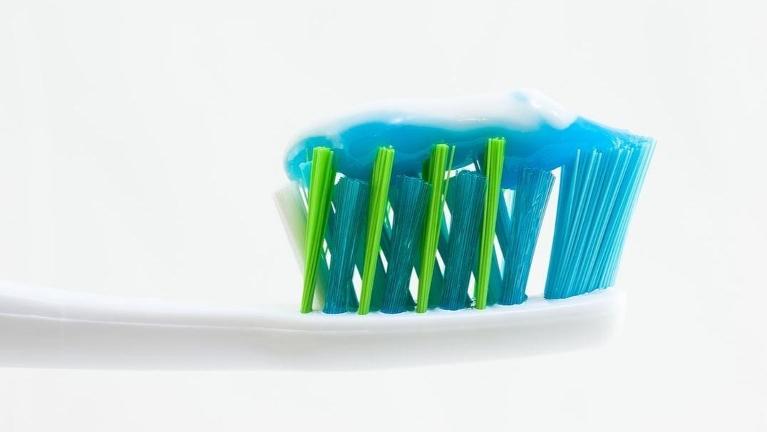
The pandemic has definitely forced us to shift the way we run our lives. And despite the idea of being safe and sound within our own homes, trying to live as normally and sanely as possible can be challenging for many of us—especially if we have oral care problems.
That being said, it’s important we take all the necessary steps in making sure our teeth and gums are healthy all the time! If you don’t already know, the Texas Dental Association has made it clear that only essential procedures can be and should be accommodated at the moment. With that in mind, it’s crucial that we go the extra mile in ensuring our oral care is top-notch.
Here are a few helpful tips to keep in mind while we’re all in quarantine
Brush your teeth twice daily
This may sound like a no-brainer, but how many of us religiously follow this deal practice? Doing so is vital because every time we eat, food bits mixed with bacteria remain in our mouth. When not take care of early and properly, this can lead to the formation of plaque. While plaque development is considered a natural process, it isn’t new knowledge to say that it hampers our teeth in the long run, and opens the door to even more oral issues.
Here’s a pro tip: upon waking up, gargle with a trusted mouthwash brand and brush your teeth after your first meal. Any meals that take place within the day should be followed by gargling with mouthwash again. Still, brushing your teeth after every chow is the ideal activity. Whatever you’re most comfortable with, what’s important is you brush once in the daytime and before you go to bed.
Brushing your teeth more frequently also prevents the build-up of Tartar. Rightly so, Tratar creates teeth discoloration, traps stains, and makes it more difficult to eliminate plaque and bacteria. This solidifies a bond that can only be extricated by dental experts. It doesn’t help that this can be expensive, too.
If that isn’t enough of a trivia just yet, brushing at least twice daily also prevents gum illnesses and complications.
To elaborate, gum disease is when tissues that grip your teeth together form an infection. Needless to say, not brushing your teeth enough leads to potential gum problems. The symptoms vary depending on multiple variables, but sore gums, sensitive teeth, hurtful chewing, and prevalent bad breath are good examples. When you take good care of your mouth, you also elevate your dental hygiene.
Another thing that’s wise to do when brushing your teeth is to brush your tongue, too! Religiously doing so improves the smell of your breath and lessens the bacteria in your mouth. Know that a major cause of odor-smelling breath is sulfur-producing bacteria that hide and rest within the nooks of your tongue. After your brush, make sure to rinse your toothbrush, as well. Don’t give mouth bacteria the chance to linger in your mouth.
For a more effective approach to cleaning your tongue, you can choose to buy a tongue rake. These are virtually available everywhere, but pharmacies are the nearest stations you can get these from.
Floss!
A study says more than 60% of Americans don’t put that much premium when it comes to flossing. Nevertheless, flossing is crucial when accounting for your overall oral health. Others may find it taxing, but it does pack a string of benefits. Here are a few things you need to know about flossing:
It improves gum health and prevents tooth decay
Although brushing your teeth helps clean visible and easy-to-reach tooth areas, it’s not the most effective dental activity that helps clean in between teeth. Furthermore, plaque and bacteria can still very much exist in these areas even after brushing. As a result, you’re still just as prone to gingivitis and tooth decay. Having said that, dental floss is specifically designed to reach those hard-to-reach tooth corners, making sure plaque is easily removed.
It helps maintains good health
Gum disease has been linked to a number of impactful health problems ranging from strokes to diabetes, and even heart ailments. This is because mouth bacteria can quickly enter your body, much easier, even, if you have bleeding gums. When you floss, you help keep bacteria away, immediately lowering your chances of serious illnesses.
Keep alcohol intake to a minimum and maintain a healthy diet
It’s no secret that eating fattening food and downing sugary drinks affect our teeth. Drinks like sodas and coffee can also impact our overall oral hygiene. That’s why dentists are quick to recommend vegetables, nuts, fruits, and fish. On the other hand, drinking water, milk, and tea, instead of their more unhealthy counterparts, can help boost the health of your teeth, too.
Although drinking does have benefits of its own, the intake of alcohol on a more frequent basis can be detrimental to your teeth. Depending on your drink of choice, liquor, in general, can increase your acidity and sugar levels. If you’re conscious about your teeth appearing yellow, you might want to lessen your coffee intake, as well.
Lucky for you, we’re keeping our lines open here at Texas Periodontal Associates. Nonetheless, the guidelines and restrictions from the State of Texas and the Texas Dental Association we will be limiting our services to essential procedures only. We will be continuing any procedures of an emergency nature, address the ability to eat, reduce pain, and followup on previous procedures. If you are experiencing symptoms like bleeding gums, pain, or an ongoing bad taste don’t hesitate to reach out to us!
